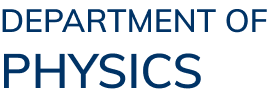Abstract
Machine learning has gained significant popularity in various fields, including chemistry, medicine, and physics, in recent years. In this study, our focus lies on the application of machine learning techniques in molecular dynamics (MD). Initially, we aim to construct a machine learning force field for bulk methane systems, enabling the replication of trajectories under three extreme pressure-temperature (PT) conditions. The force field is optimized to closely match the properties of trajectories generated through ab initio calculations using Qbox. Subsequently, we explore the development of a machine learning model to predict Raman spectra based on the trajectories obtained from the machine learning force field under the aforementioned P-T conditions. The optimization process is aimed to reach a high degree of similarity between the predicted Raman spectra and those derived from Qbox trajectories. In addition to these projects, we also contribute to the development of a home-made density functional theory (DFT) code, along with an introduction to the fundamental principles of density functional theory. Furthermore, we perform comprehensive ab initio calculations on the adsorption energies of nine different gases using three distinct Metal-organic frameworks (MOF) materials.
